Community Land Trust Celebrates New ‘Forever Affordable’ Homes
'Pay it forward model' makes renovated homes affordable for multiple owners.
One of Milwaukee’s “all of the above” strategies to create affordable housing has more than doubled in size.
The Milwaukee Community Land Trust (MCLT) celebrated the successful renovation of five vacant, city-owned homes Monday, expanding its portfolio of “forever affordable” homes.
“All of us know that affordable housing is one of the most challenging things facing not just us in Milwaukee, but across Wisconsin and really across our country,” said Mayor Cavalier Johnson. “These homes are the foundation for new opportunities for families right here in our city. This is real. It’s progress. But all of us know that this is really just the start.”
In partnership with development firm One 5 Olive, MCLT renovated the homes through the city’s Homes MKE program. The larger, $15 million initiative hopes to renovate approximately 120 homes by providing a cash grant of approximately $120,000 and a vacant home to private developers who must renovate the property and then sell or lease it at an affordable rate.
“These homes are not just bricks and mortar,” said MCLT Executive Director Lamont Davis. “They also are places of pride, stability and generational opportunity for families who in many other cases would just remain renters.”
The press conference was held outside of a house at 1833 S. 11th St., which is now home for Jeanette Torres and her family of five.
“We were able to make our dream of homeownership a reality,” said Torres, a community organizer with the Southside Organizing Center, while standing next to her partner Jovan Jiron, Sr. and daughter. “We lived in a rental property where we forced to move after the house was sold without any warning.” Torres family lived in her parents’ home for two years, saving up money to buy the house.
She credited her mother, Clarissa Morales, a fellow organizer, with introducing her to MCLT.
“I particularly appreciate the extensive support system included in this model,” she said. Homebuyers are required to go through homebuying counseling to purchase a home. The practice is designed to put them in a position for long-term success.
MCLT’s model involves legally splitting the home from the land in order to achieve the “forever affordable” component and provide future owners with the same affordable homebuying opportunity. Torres is technically leasing the land for 99 years, and when she sells the house, she is allowed to realize a small annual gain and the amount she has paid down on her mortgage. Capping her return allows MCLT to “recycle” the initial subsidy by passing it on to the next homeowner in the form of a reduced purchase price.
The Greater Milwaukee Foundation and Zilber Family Foundation provided approximately $40,000 in grants to lower the ultimate sale price to $90,000. Davis said Torres was able to use downpayment assistance programs to lower their mortgage to approximately $70,000. MCLT works to price its home at a rate that is affordable for a household making 45% of the area median income, which Davis said is a lower percentage than the city targets.
“Owning our own home will not only help us build financial wealth for our children and our future family, our future grandchildren, but also strengthen the relationship we have with our communities,” said Torres.
Davis describes the structure as “simple, but transformational” and a “pay it forward model.”
The MCLT model is targeted at households making between $30,000 and $50,000 annually. “This work is rooted in racial equity. We know the legacy of redlining and disinvestment continues to impact Black and Brown families in our city,” said Davis.
One 5 Olive partner Gregory Davis thanked MCLT, Torres and her family, neighbors and project supporters for their patience and support. “Together, with all of you, we returned a home to this neighborhood. One that will foster memories, hopefully a couple cookouts and strengthen Milwaukee for years to come,” he said.
Common Council President and area Alderman José G. Pérez said he often drives by the property on his way to Milwaukee City Hall. He remembers when it was a vacant home and attracted squatters. “Not only do these properties drain city resources, they can also have a negative impact, as I can attest, on the surrounding community,” he said.
Pérez said Homes MKE and MCLT are providing a solution to a problem with a high likelihood of success. “The housing model addresses displacement, gentrification and some things that are harder to quantify, such as hope and belief,” said Pérez. “There is no shortage of winners when it comes to this initiative.”
“This is the power of partnerships on full display,” said Department of City Development Commissioner Lafayette Crump.
The reimbursement-based cash grants in Homes MKE are designed to cover the gap between the renovation cost and the final market value of the homes. “The majority of the 14 local development teams that participate in the program are emerging developers and developers of color like One 5 Olive. So, diverse groups of people are doing this work, and we’re addressing racial home ownership gaps and providing pathways to financial stability for generations to come,” said Crump.
Northwestern Mutual provided construction financing to MCLT and One 5 Olive, effectively a cash infusion while MCLT was awaiting the reimbursement funding from the Homes MKE program.
The four other new MCLT homes are at 2872 N. 21st St., 1317 S. 23rd St., 2508 N. 24th St. and 3220-3222 N. 28th St. The nonprofit unveiled its first home in 2022 and added three more in 2023.
MCLT hopes to grow by almost another 50% in the coming year. It is partnering with Milwaukee Habitat for Humanity on four homes in the Lindsay Heights neighborhood. “Thanks to a multi-year grant from JPMorgan Chase, we’re exploring new approaches like a buyer’s choice model and expanding into new construction,” said Davis. “We’re also working with Milwaukee County to explore how the MCLT model can be used for workforce housing and equity housing in nearby suburbs.”
The Community Development Alliance is working on coordinating several other housing initiatives, including expanding Habitat’s capacity and developing homes for early childhood educators, as part of a multi-decade strategy to close the city’s racial housing gap and create 32,000 new Black and Brown homeowners.
“Our goal is simple, but ambitious. We want to make quality, affordable home ownership possible for every Milwaukeean who dreams of it,” said Davis of MCLT.
Press Conference
MCLT Renovated Homes
Before Pictures
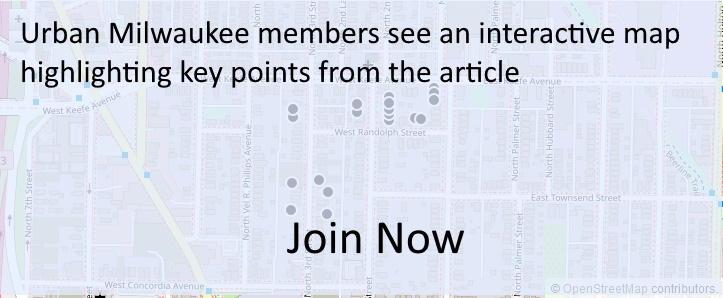
Existing members must be signed in to see the interactive map. Sign in.
If you think stories like this are important, become a member of Urban Milwaukee and help support real, independent journalism. Plus you get some cool added benefits.


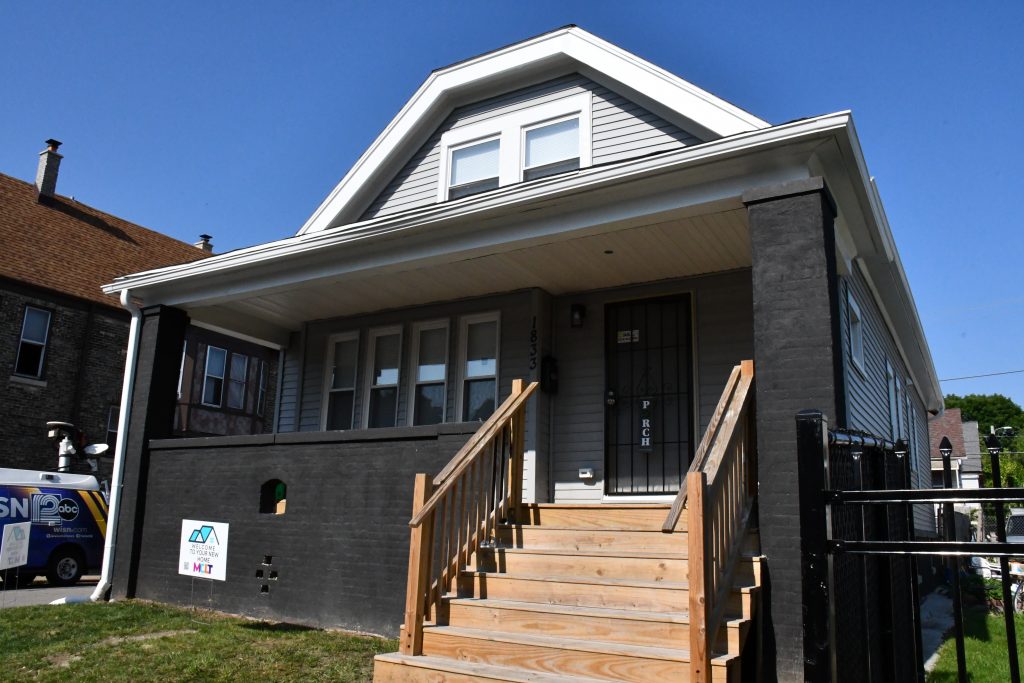
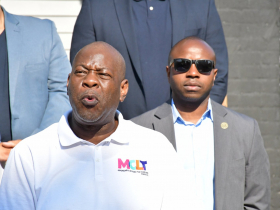
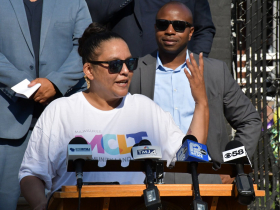
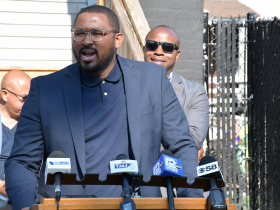
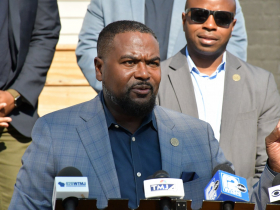
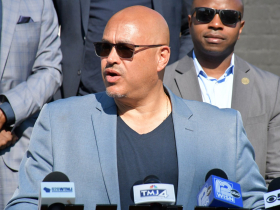
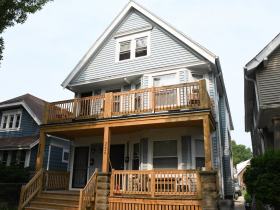
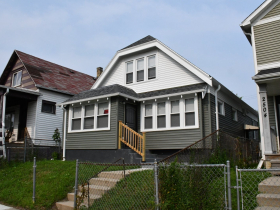
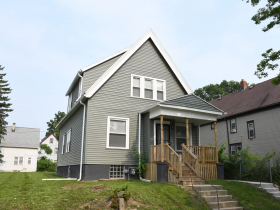
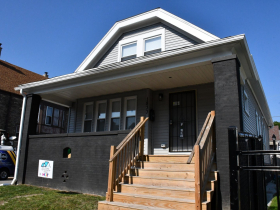
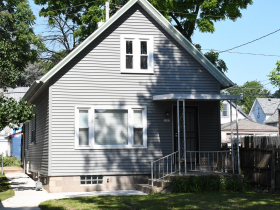
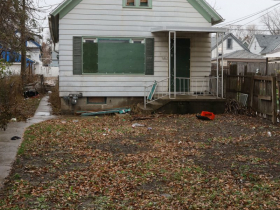
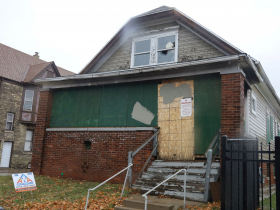
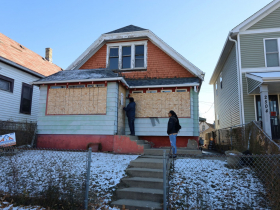
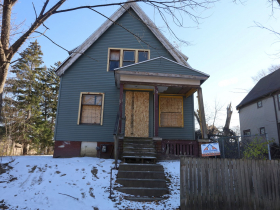
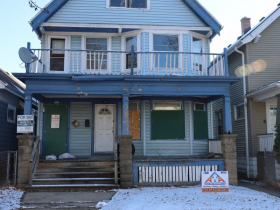




















Thank you for the before-and-after photos; these are quite telling!